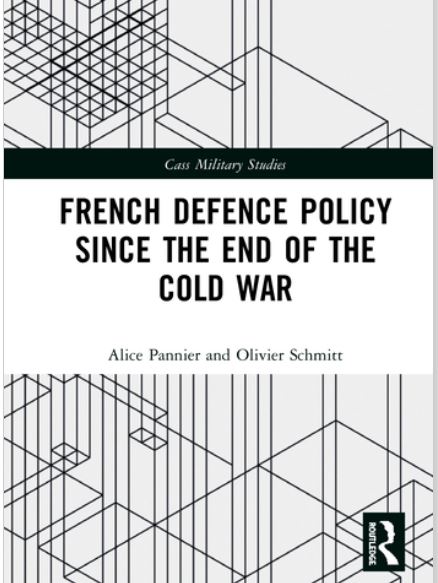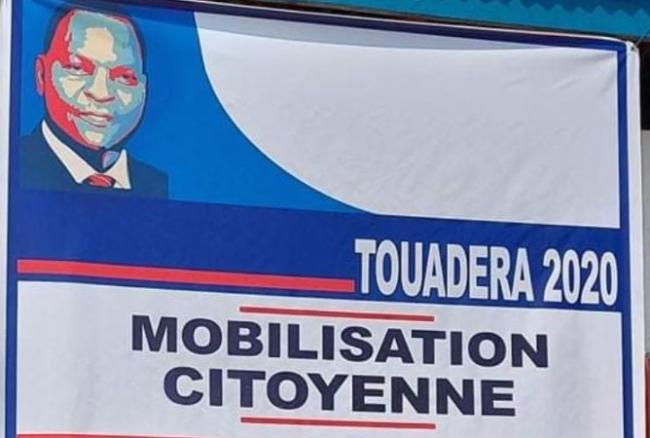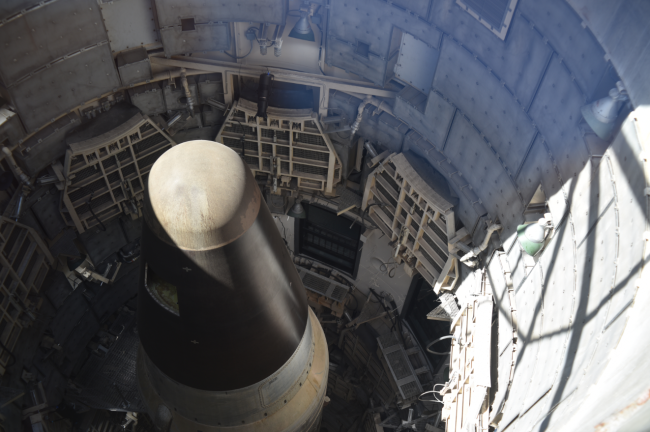France vs. Turkey in the EastMed: A Geopolitical Rivalry between a “Keeper” of the Old Order and a Challenging Emergent Power
The Franco-Turkish standoff is first and foremost a geopolitical contest for influence in the EastMed area. It must be understood in light of Turkey’s rise as an emergent power in quest for geostrategic autonomy and France’s unease with Ankara’s growing assertiveness in a region that Paris traditionally views as part of its sphere of influence.


French Complain of Germany's 'Political Infidelity'
"Thirty years of infidelity" is how France's current affairs magazine Marianne describes Germany's relationship with France. An issue this month was devoted to how Germany has been "fleecing France" for years.


Germany calls for closer cooperation with France over security threats
German Defence Minister Annegret Kramp-Karrenbauer has called for closer bilateral cooperation with France in light of the tense security situation in Europe marked by the Russian “threat”, the rise of China and spreading “Islamist terrorism” in the Sahel region.
Central African Social Media at the Dawn of the Elections : An Advanced Symptom of a Coming Political Crisis
Although the Central African Republic remains a very weakly connected country with an Internet penetration rate of 14% in 2020, citizens begin to appropriate the use of social networks.
Cyber-influence : les nouveaux enjeux de la lutte informationnelle
The coming of age of a digital “info sphere” has dramatically changed the nature of military information support strategy.


Russia’s spat with EU puts relations into deep-freeze
Kremlin stance is blow to European countries which favour outreach to Moscow. Russia’s combative treatment of the EU’s top diplomat during a landmark trip there has triggered a political outcry — but little expectation that the European bloc will end divisions over how to handle the Kremlin.
Once a Jihadist, Always a Jihadist? A Deradicalization Program Seen from the Inside
France has traditionally taken a security-based approach to the fight against terror. It was a latecomer to the field of radicalization prevention and the establishment of disengagement programs aimed at jihadists. It only started to think seriously about the issue in 2013 and its first attempts involved certain irregularities.
Réparer 2020 ou préparer 2030 ? L’entraînement des forces françaises à l’ère du combat multi-domaine
From basic training to the conduct of international exercises, operational readiness planning aim to make the components of military capabilities (equipment, doctrines, operational know-hows) consistent with the operational contracts decided at the strategic level.
Strategic Risk Reduction between Nuclear-Weapons Possessors
The topic of nuclear risk reduction has gained momentum in the international security debate among policymakers, nongovernmental organizations, and experts.

French Defence Policy Since the End of the Cold War
With a look at evolutions over the past three decades, the thematic chapters cover French defense institutions and civil-military relations, the transformation of armed forces, nuclear deterrence, the defense industry, military interventions, and alliances.
Hoplites numériques : Le combat d'infanterie à l'âge de l'information
FELIN, the first "integrated soldier system" in the world, will be effective this year in the French Army. Throughout history, infantrymen have tried to capitalize on technology while trying to arbitrate between the three basic requirements that are mobility, firepower and force protection.
Gas Pains: What to Do About France's Shales
Like other countries in Europe, France has the potential to produce both oil and gas from shale. In the Paris Basin, where oil has been exploited for decades, oil shale quite similar to the Bakken play in North America has considerable promise due to new drilling and exploitation techniques. The potential for shale gas in the South east is less well known and needs to be assessed.
Francs-tireurs et Centurions : Les ambiguïtés de l'héritage contre-insurrectionnel français
The war in Afghanistan and David Galula’s reputation in the United States have revived France’s counterinsurgency legacy. This legacy must be divided into two separate periods: the colonial era and later on the wars of decolonization fought by France in Indochina and Algeria.
German Energy Policy
On the 28th September 2010, Angela Merkel announced her government’s publication of an “energy concept” describing the target which the Federal Republic hoped to give itself regarding its energy consumption in 2050.
The French Armenian Diaspora and Turkey: The possibility of dialogue?
For several decades, French persons of Armenian origin have played a special role in Franco-Turkish relations. History explains this. Armenians originally came to France fleeing the massacres at the end of the Ottoman Empire, and for nearly a century they have integrated perfectly into the French social and political landscape, while keeping the memory of past traumas intact. Recognition of the 1915 genocide has been an explicit claim by the Armenian Diaspora scattered across the four corners of the world. In 2001, such recognition was voted by the French Parliament, and has thus become a subject of discord between France and Turkey.
Caveats to Civilian Aid Programs in Counterinsurgency: The French Experience in Afghanistan
Amaury de Féligonde has just spent one year in Kapisa and Surobi as a project manager within the Afghan-Pakistan Interministerial Unit. Back in France, he expresses his personal views and draws conclusions from his experience.
‘‘I'm Not a Feminist, But…'', a Comparative Analysis of the Women's Movement in the United States and France
The emergence of a feminist thought in the 18th century gave rise to steady and regular exchanges between French philosophers and American activists. They illustrate in a very particular sector the wealth of the relation between both countries. This dialogue continues on renewed bases today: both in universities (with the exploration of the concept of gender) and in the militant world (with the defense of precise and limited causes).
France's Return into NATO: French Military Culture and Strategic Identity in Question
More than 40 years after the unilateral decision by General de Gaulle to withdraw French forces from NATO's integrated military command, President Sarkozy decided that France would reintegrate the Atlantic Alliance’s military structure, based on "full and complete participation". The decision was endorsed by Parliament and has generated little debate in France, while a majority of French people appear to approve of it.
Saving Wind from its Subsidies
European subsidies for wind energy are too high and unspecific. They risk frustrating their own objective.
Turkey's "French Problem"
For several years the French-Turkish bilateral relationship is experiencing a phase of crisis and readjustments.
Support independent French research
Ifri, a foundation recognized as being of public utility, relies largely on private donors – companies and individuals – to guarantee its sustainability and intellectual independence. Through their funding, donors help maintain the Institute's position among the world's leading think tanks. By benefiting from an internationally recognized network and expertise, donors refine their understanding of geopolitical risk and its consequences on global politics and the economy. In 2025, Ifri supports more than 80 French and foreign companies and organizations.












